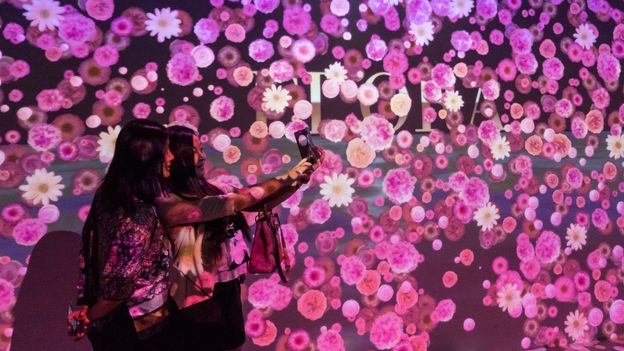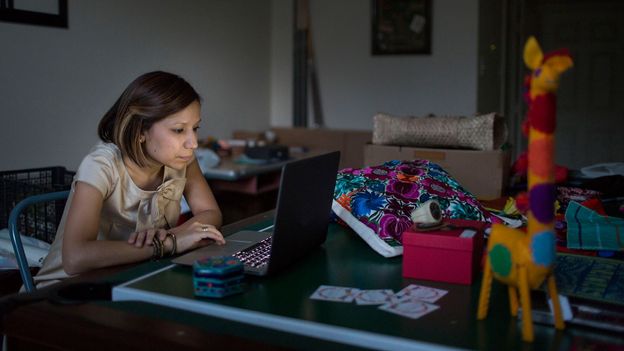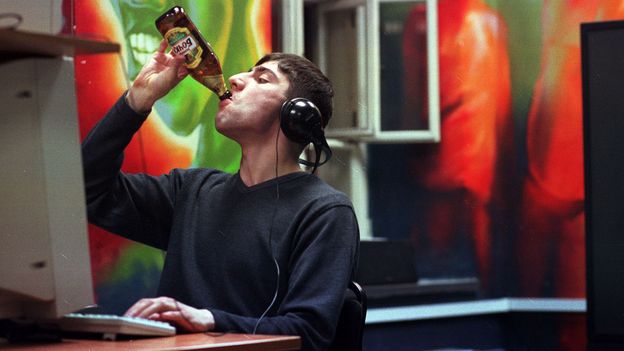The end of text?
But will text messaging suffer the same fate as email as other “cooler” ways to communicate come along?
“One [new] technology brings about other technologies,” says James Ivory, professor of communications at Virginia Polytechnic Institute and State University. “The adoption curve gets faster and faster.”
In other words, the internet and computers spawned email, which eventually led to texts on smartphones. And smartphones, equipped with high resolution cameras, are already providing ways for those at the cutting-edge to communicate in new ways.
“I think flat ‘texting’ is already being replaced,” says the University of Buffalo’s Stefanone. “Snap (parent company of Snapchat) enables us to idealise the images we present of ourselves through filters – look at its growing popularity.”
The number of daily active Snapchat users has grown every quarter since 2014, with nearly 200 million users worldwide in the first quarter of 2018. The world of Instagram influencers, YouTube vloggers and reaction GIFs has created a very visual culture of communication. It’s not just a text message – it’s a selfie, a Boomerang, a sparkly pink unicorn sticker or big bubble text reading “lit” or “it me.”
“As a professional I have been with students almost 20 years,” Lauricella says. “And things have turned more visual. Text (messaging) is pure words – whereas now if I want to get my daughter’s attention, I send her a Snapchat. Me sending a funny face asking ‘can you please take out the trash?’”
I’m noticing this in my own life. Facebook Messenger notes are starting to pile up, causing me to put off responding and feeling guilty later. Perhaps they’re beginning to remind me too much of email?
But despite all the grief we give it, email does offer something that may be worth salvaging.
“We are losing one thing as email declines – and that’s no one really owns email,” says Ivory. “Most of the technology and applications that are competing for replacing email are privately owned by somebody – there’s a CEO for Snap, there’s a CEO for Facebook. For better or worse, we are losing one of those great public web technologies.” Sure, one could argue that Microsoft owns Hotmail or Google owns Gmail. But the intellectual concept of email isn’t owned by a specific company the way certain apps or forms of texting are. Or that’s how email started, anyway.
It might not be enough to make people fall back in love with email, but if text messaging is similarly overtaken by app-based communication tools, the way we message each other will become ever more constrained by rules set by private companies.
In reality, however, text messages are only likely be doomed if they become tied to work in the way email has.
“As soon as your boss can text you,” it’s over, Morrison says. It will no longer be fun.
“It’s like trying to throw a cocktail party in your office and wondering why it’s not working.”
—
Bryan Lufkin is BBC Capital’s features writer. Follow him on Twitter @bryan_lufkin.
To comment on this story or anything else you have seen on BBC Capital, please head over to our Facebook page or message us on Twitter.
If you liked this story, sign up for the weekly bbc.com features newsletter called “If You Only Read 6 Things This Week”. A handpicked selection of stories from BBC Future, Culture, Capital and Travel, delivered to your inbox every Friday.








